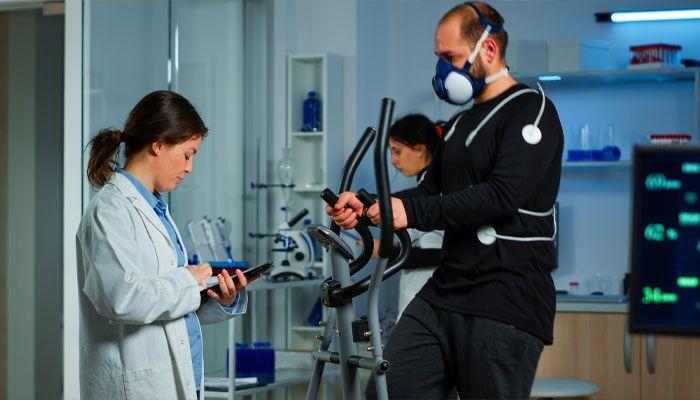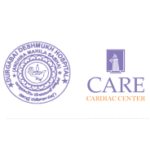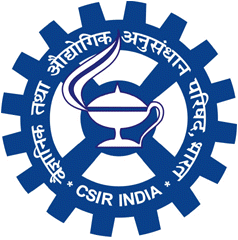Treatments Focus
Exercise regimen depending on your endurance, Physiological response

It is observed that some people require strenuous exercise regimen, diet, etc. to achieve an aimed physique or body, whereas in some the same body is achieved with minimum effort. Various elements could be responsible for the end outcome, for example the quality of food in-take, time of the day (morning or evening), duration and punctuality of the exercise, and health conditions, if any.
Your exercise regimen depends totally on your endurance and physiological response. The body’s first physiological response to vigorous exercise is demand in oxygen. As the intensity of the exercise increases your heart rate increases, so is your need for oxygen.
What happens to your body during exercise? – Physiological Response
When you begin to exercise, different systems of your body respond to this intensity of movement differently. This is called physiological response of the body to exercise. You may experience a burning sensation and discomfort in muscles, heavy breathing or increase in heart rate.
Following are details about how your body functions in different areas of the body during exercise.
- Central Nervous System (CNS): Your CNS will maintain physiological responses to exercise. Blood flow and oxygen levels are maintained.
- Metabolism: Glucose output is increased and breakdown of fats begin.
- Skin: Sweat rate increases by heat dissipation (initially body temperature rises, then cools down)
- Oxygen transport: Oxygen uptake increases, heart rate increases rapidly.
- Skeletal muscle: Increase in (Adenosine triphosphate) ATP, a molecule that gives energy. Increase in oxygen consumption and utilization.
Selection of an exercise regimen and adhering to it depends on:
- Routine – Frequency, intensity, time and type of the exercise.
- Self-motivation – Personal motivation can play a main role in exercise.
- Biophysical issues – Certain conditions like fatigue or injury can restrain the type of exercises you can do.
- Psychosocial commitments – Home or family situations like having a baby can compromise your exercise routine.
- Environmental factors – Environment/weather can affect your mood to exercise or procrastinate it
- Resources – Availability of equipment to exercise or to join a gym. Financial situation plays a major role.
- Genetics – Your genes could be a reason why you can do certain type of exercises and how well your body responds to it.
FAQ's :
Nutrition can help enhance your athletic performance. Not only in performance, but eating healthy can motivate by improving your mood and bring better results rather than eating oily, processed foods.
Yes, genetics impacts all areas of fitness and performance, this includes muscles and strength. Genes also dictate the speed of muscle contraction and muscle development.
Yes, genes do dictate your endurance abilities to some level. It even affects the type of exercise you choose to do. Some changes in your genes also dictate how efficiently you can do an exercise.
Yes, genetic testing such as DNA fitness testing is a good option to start with. Depending on your results, you will receive a personalised program designed for you. A workout plan will consist of both exercise and diet suggestions. The results generally talk about your performance, body’s fat burning and recovery abilities.
References:
- Is athletic performance determined by genetics? MedlinePlus https://medlineplus.gov/genetics/understanding/traits/athleticperformance/ Accessed on 29-03-2022
- Exercise and gene expression: physiological regulation of the human genome through physical activity. The Journal of Physiology. https://www.ncbi.nlm.nih.gov/pmc/articles/PMC2290514/ Accessed on 29-03-2022
- The exercise effect. American Physiological Association. https://www.apa.org/monitor/2011/12/exercise Accessed on 29-03-2022
- PHYSIOLOGIC RESPONSES AND LONG-TERM ADAPTATIONS TO EXERCISE. Centers for Disease Control and Prevention. https://www.cdc.gov/nccdphp/sgr/pdf/chap3.pdf Accessed on 29-03-2022
- Factors influencing adherence to regular exercise in middle-aged women: a qualitative study to inform clinical practice. BMC Women’s Health. https://www.ncbi.nlm.nih.gov/pmc/articles/PMC3975263/ Accessed on 29-03-2022
Related Articles
Book an Appointment to understand how GenepoweRx can help you in treating
Exercise regimen depending on your endurance, Physiological response
Meet The Doctors
Dr Kalyan Uppaluri
Dr Hima Challa
Your genetics … Your Test ... Your Health Success
It’s always the word of mouth that’s the best advice. Here are some of our…


Our Partners






Professional Partnerships
Government Association

